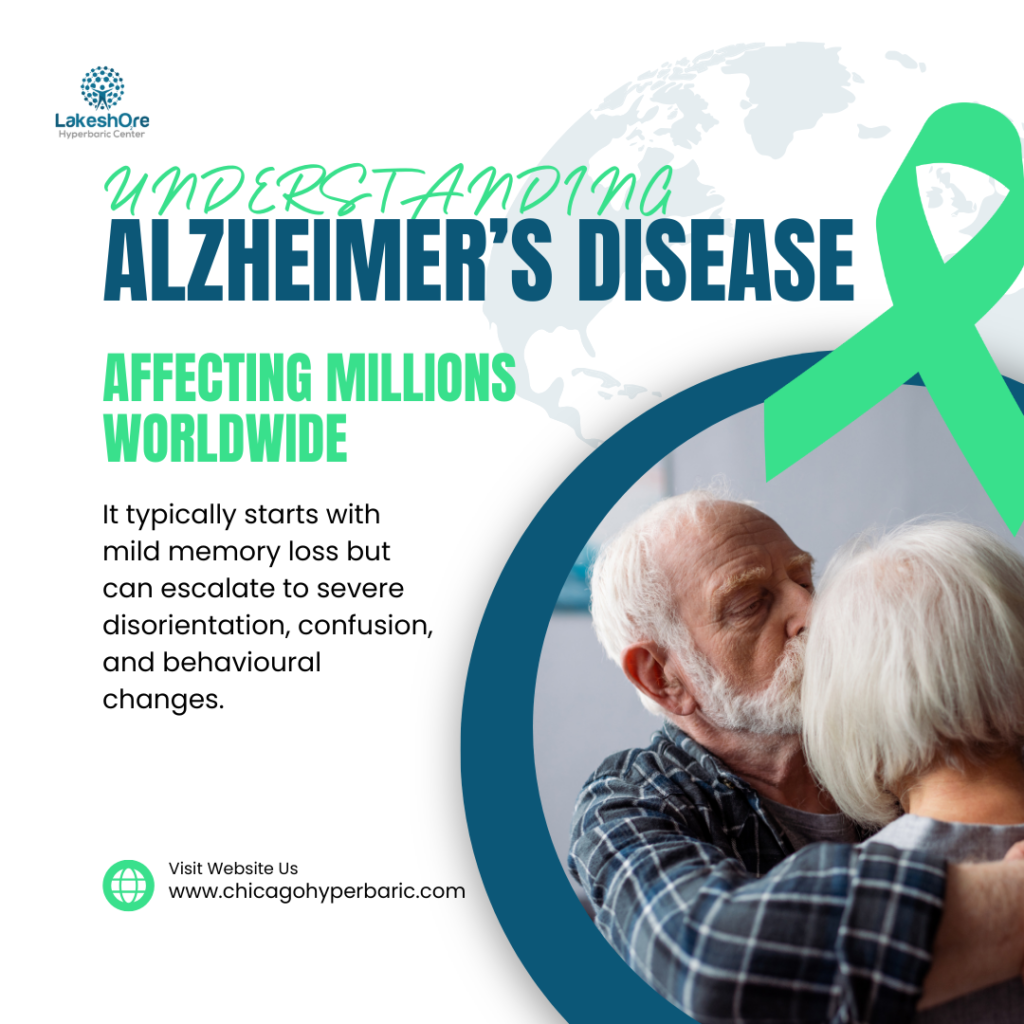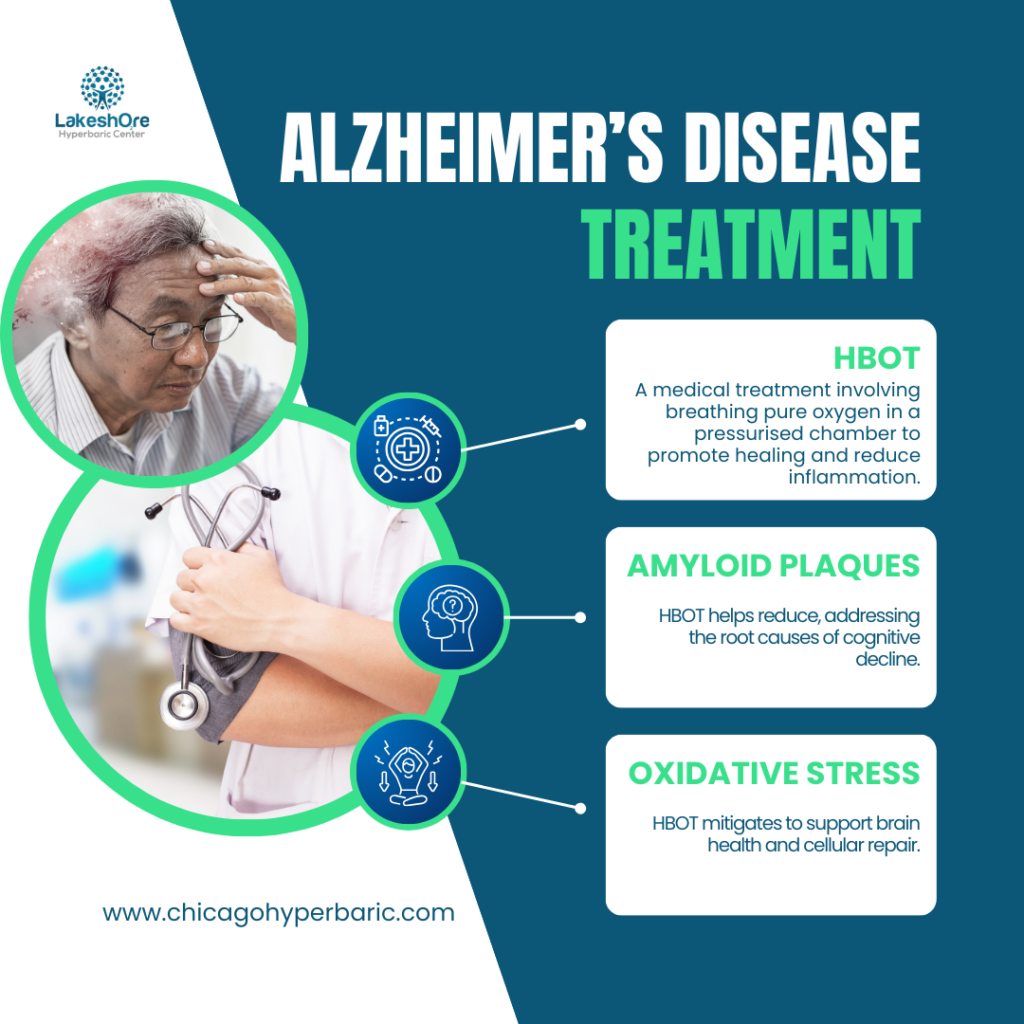HBOT for Alzheimer’s
Alzheimer’s disease is a debilitating brain disorder that slowly erodes memory, thinking skills, and the ability to carry out daily activities.
It is the leading cause of dementia, affecting millions of people globally. The condition places a heavy emotional and financial burden on patients and their families, with no definitive cure available. This has driven researchers to explore innovative treatments that could slow its progression or alleviate its symptoms.
Hyperbaric oxygen therapy (HBOT), a treatment initially used for conditions like decompression sickness, has emerged as a promising option for neurological disorders, including Alzheimer’s disease. By delivering concentrated oxygen in a pressurised chamber, HBOT promotes healing, enhances oxygen flow to tissues, and reduces inflammation – all of which are crucial in addressing the complexities of Alzheimer’s.
In a pivotal study published in Medical Gas Research, Dr. Paul Harch and Dr. Edward Fogarty demonstrated the effectiveness of HBOT in treating Alzheimer’s. The study involved a 58-year-old patient whose cognitive abilities had significantly declined. Remarkably, PET scans revealed notable improvements in brain metabolism following a series of HBOT sessions. These findings mark an important milestone, offering hope for patients and caregivers seeking advanced treatment options for Alzheimer’s disease.

Understanding Alzheimer’s Disease
Alzheimer’s disease is the most common cause of dementia, affecting millions worldwide. This progressive condition slowly destroys memory, cognitive skills, and the ability to perform basic tasks. It typically starts with mild memory loss but can escalate to severe disorientation, confusion, and behavioural changes. Common Alzheimer’s disease symptoms include difficulty remembering recent events, challenges in planning or problem-solving, trouble with language, and impaired judgement.
While there are treatments aimed at managing Alzheimer’s disease symptoms, they have significant limitations. Current options, such as acetylcholinesterase inhibitors and memantine, focus on temporarily improving cognitive function or slowing the disease’s progression. However, they do not address the underlying causes of the disease or significantly alter its trajectory. As a result, the search for innovative therapies, such as hyperbaric oxygen therapy for dementia, has gained importance in recent years.

How HBOT Works in Alzheimer’s Disease Treatment
Hyperbaric oxygen therapy (HBOT) is a non-invasive medical treatment that involves breathing 100% oxygen in a pressurised environment. This process increases oxygen delivery to tissues throughout the body, promoting cellular repair and reducing inflammation. For Alzheimer’s disease, HBOT offers a novel approach by addressing multiple pathological processes linked to the condition.
One of the critical benefits of HBOT for Alzheimer’s is its ability to reduce amyloid plaques and tau phosphorylation, two hallmark features of the disease. Amyloid accumulation in the brain leads to neuron damage, while tau phosphorylation disrupts normal cell function. By targeting these processes, HBOT can mitigate some of the root causes of cognitive decline.
HBOT also enhances microcirculation, improving blood flow and oxygen delivery to areas of the brain affected by Alzheimer’s disease. Additionally, it supports mitochondrial function, the energy-producing structures in cells, which are often compromised in neurodegenerative disorders.
Furthermore, HBOT is effective in controlling inflammation and oxidative stress, two major contributors to Alzheimer’s progression. Chronic inflammation can accelerate brain damage, while oxidative stress damages cells at the molecular level. By addressing these issues, HBOT can create a more favourable environment for brain health.
These findings are supported by research, including the work of Dr. Paul Harch, which has demonstrated significant improvements in brain metabolism and cognitive function following HBOT. While still emerging, this innovative therapy represents a beacon of hope for those seeking advanced Alzheimer’s disease treatment options.
Case Study: HBOT’s Impact on a Patient with Alzheimer’s
A groundbreaking study led by Dr. Paul Harch demonstrated the transformative potential of hyperbaric oxygen therapy (HBOT) for Alzheimer’s disease treatment. The case involved a 58-year-old woman who had been experiencing cognitive decline for five years, with symptoms rapidly worsening. Diagnostic imaging, including PET scans, confirmed Alzheimer’s disease, revealing significant metabolic deficits in her brain.
The patient underwent a series of 40 HBOT sessions over 66 days, with treatments conducted five days a week. Each session involved 50 minutes of oxygen therapy at 1.15 atmosphere absolute. Remarkable improvements were observed after just 21 sessions, with the patient reporting increased energy, better mood, improved memory, and enhanced ability to perform daily tasks. By the end of the 40 sessions, the patient experienced further gains, including better sleep, reduced anxiety, improved concentration, and greater physical coordination.
Follow-up PET scans showed a significant 6.5–38% improvement in brain metabolism, providing tangible evidence of HBOT’s impact. However, two months after the initial treatment, some symptoms returned. The patient resumed HBOT sessions, receiving an additional 56 treatments over 20 months, which stabilised her condition.
This study, published in Medical Gas Research, marks a pivotal step in demonstrating how HBOT can address Alzheimer’s disease symptoms and potentially slow its progression.
HBOT: A New Hope for Treating Alzheimer’s Disease
The findings from Dr. Harch’s study suggest that HBOT could redefine the approach to Alzheimer’s disease treatment. By targeting multiple underlying factors, such as inflammation, oxidative stress, and amyloid plaque accumulation, HBOT offers more than symptomatic relief. It provides a pathway to potentially improve brain function and quality of life.
When combined with existing Alzheimer’s disease medications like acetylcholinesterase inhibitors or memantine, HBOT could further enhance treatment outcomes. These medications focus on slowing the disease’s progression, while HBOT addresses the cellular and metabolic dysfunctions underlying the condition. Together, they could offer a more comprehensive approach to managing Alzheimer’s disease.
HBOT also holds promise for broader applications in managing dementia and cognitive decline. Its ability to enhance brain metabolism and improve neurological function could benefit individuals in the early stages of these conditions, offering a proactive treatment option.
While more research is needed, the success of studies like Dr. Harch’s brings renewed hope for patients and caregivers seeking effective solutions for Alzheimer’s disease. Hyperbaric oxygen therapy for dementia and Alzheimer’s is emerging as a game-changing innovation that could significantly improve lives.
Conclusion
Dr. Paul Harch’s recent study on hyperbaric oxygen therapy (HBOT) has shown promising results in treating Alzheimer’s disease, highlighting significant improvements in brain metabolism and cognitive function. The patient’s progress, including better memory and mood, after 40 HBOT sessions, marks a hopeful milestone in the management of Alzheimer’s. This breakthrough underscores the need for further research into HBOT as a potential treatment for Alzheimer’s and dementia.
If you or a loved one is facing the challenges of Alzheimer’s disease, it’s crucial to explore all available treatment options. At Lakeshore Hyperbaric Center, our patient-centric approach focuses on providing individualized care for each client, including the latest advancements in HBOT. Led by Dr. Cohen, a respected neurologist with years of experience in neurological care, our team is dedicated to improving your health and quality of life.
For more information on how hyperbaric oxygen therapy can support Alzheimer’s treatment, or to schedule a consultation, contact Lakeshore Hyperbaric Center today. We listen, we care, and we are here to help you on your journey toward better brain health.




